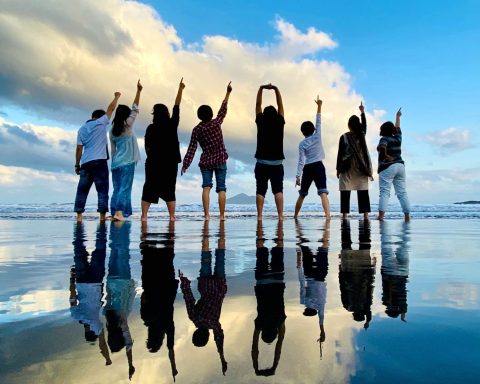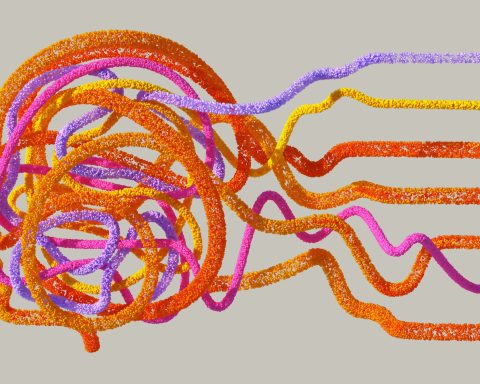Terry Kemple serves as national RCGP representative for sustainability, climate change and green issues. Twitter @TKemple
Angela Wilson is climate and sustainability lead for Thames Valley RCGP Faculty
Amelia Cussans is a psychiatry trainee in London.Twitter @DrAmeliaCussans
Guy Harvey is is a consultant psychiatrist and clinical lead for sustainable healthcare in Newcastle
Tracy Lyons is directorate sustainability lead, radiology & pharmacy, University Hospital Dorset NHS Foundation Trust, Poole
Mike Tomson is a retired GP in Sheffield and director of Greener Practice C.I.C.
In emergencies, our actions must be timely if they are to be effective. Mitigating the climate and ecological emergency requires the right actions, implemented rapidly. In this article, we discuss how we set up a collaborative effort to reduce the environmental impact of the drugs we prescribe; how we met and worked; and reflect on what we learnt from the experience.
Guy Harvey, a psychiatrist, and Terry Kemple, a retired GP, started the project in January 2021. We decided against any formal Royal College recognition but opted for an informal working group. This was easier and quicker to arrange and serves as a model for future collaborations.
We liaised with other organisations like Greener NHS, and also communicated by email, phone calls and a Google folder set up to share our resources and draft articles.
We used our networks to invite others to help. Four psychiatrists and four GPs formed the group. Two left due to time constraints and professional obligations and two pharmacists joined. We gave ourselves six months to complete our work. Our objective became to find a way for the NHS and prescribers to know that the medications they used were not causing direct or indirect harm to the environment. Seven of us wrote the final draft for main publication. The group achieved this and other publications.1,2
The initial meetings were one-to-one by phone or video. We then met together via Zoom seven times between March and August 2021. We liaised with other organisations like Greener NHS, and also communicated by email, phone calls and a Google folder set up to share our resources and draft articles.
At the end of this collaboration, we asked members to give feedback confidentially on the process and work of the group. Common reflections emerged.
A wealth of experience was combined with a desire to learn and adapt to very different ways of working. Experience ranged from trainees through full- and part-time clinicians to retired members. The shared passion was using our skills and professional positions to protect the health of the planet. We tended to run with where the energy was. Some people worked more on a project for a while then others took over when they were able.
The focus was maintained despite our non-hierarchical structure. There was fluidity in how the group met and worked. Members that were less vocal had their voices heard, and could engage and contribute. A senior member facilitated this by reaching out at an early stage to ensure that members felt heard and respected in their roles. The initially quieter members eventually took lead roles in authorship.
Collaborations like this are able to respond at the necessary pace; if our Royal Colleges could support such collaborations, their effectiveness would be further increased.
The work on writing documents was a challenging and rewarding process. Our collaboration rapidly navigated Tuckman’s stages of group development (Forming, storming, norming and performing). We ended up producing a large body of work in a short time through our discussions on the aims and content of articles. The first drafts were written by one person; others then reviewed and commented; each draft was edited collaboratively; the articles were discussed again over Zoom, any controversial points were debated; and the final drafts were agreed for submission.
More power was added to our voice by working with other specialities. We increased our own knowledge and our combined voices are more likely to influence others. Pharmaceutical companies will know that we are aware of the enormous impact their products have on the NHS carbon and ecological footprint and that their impact will become closely monitored in the future.
We felt we learnt a lot about each other’s specialities, NHS procurement and that new networks had been formed that would continue to take the work forward in the future.
Other feedback was that future collaborations should make some informal rules about communication and facilitation and clarify how to comment and edit documents.
Combatting climate change and ecological degradation requires a rapid, radical change. Collaborations like this are able to respond at the necessary pace; if our Royal Colleges could support such collaborations, their effectiveness would be further increased.
The response to the Climate and Ecological Emergency needs to involve the people that will be most affected by its impacts: particularly the vulnerable and young. Traditional and slower ways of working can deter some people from engaging in work designed to transform working practices. Flexible non-hierarchical short-term projects could allow these voices to be heard and unexpected novel solutions to emerge. The future of planetary health depends on it.
References/Further reading
- Cussans A et al, Environmental impact ratings that could drive positive environmental changes in the manufacture and use of pharmaceuticals, BJGP Open DOI: https://doi.org/10.3399/BJGPO.2021.0214
- Cussans A et al, Interventions to Reduce the Environmental Impact of Medicines: A UK perspective, The Journal of Climate Change and Health, 2021; 4: 100079, https://doi.org/10.1016/j.joclim.2021.100079






